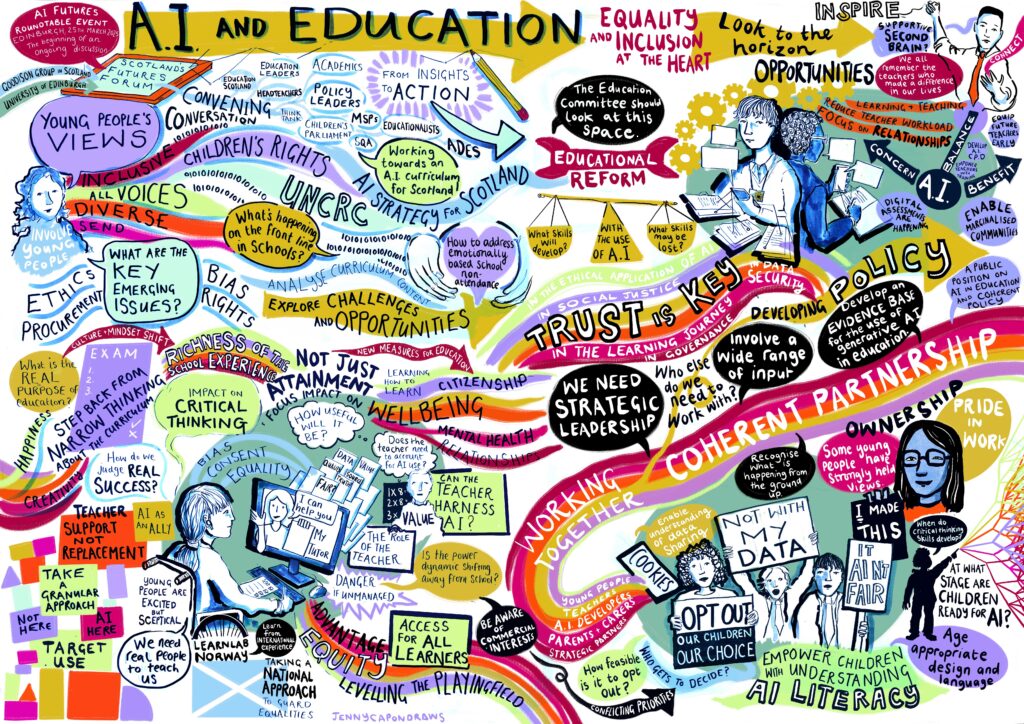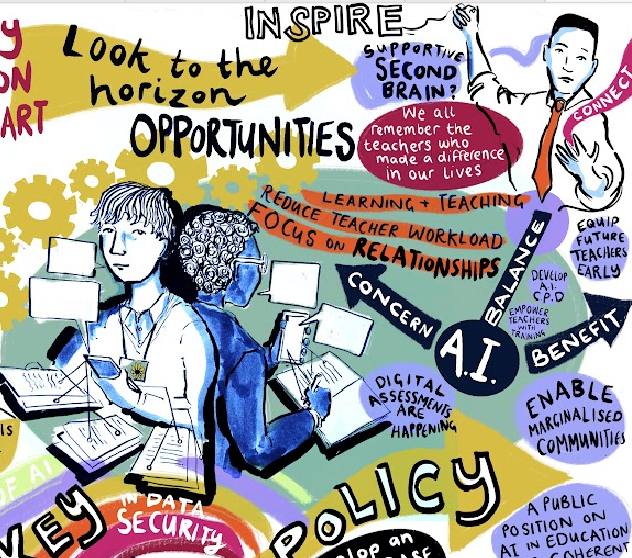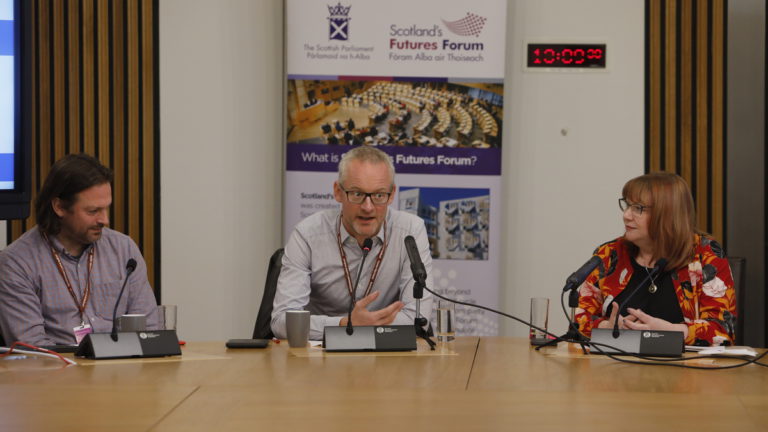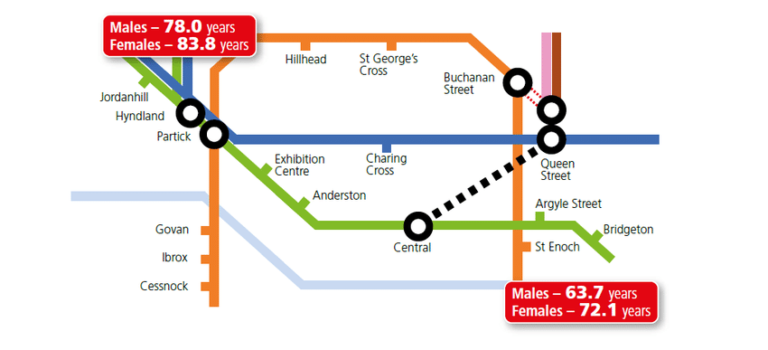The Role of Responsible AI in Scottish Education
This event, held on 25 March at the Scottish Parliament, brought together a group of education leaders, educationalists, policy makers and relevant education stakeholders for an exploratory discussion on possible futures for artificial intelligence (AI) in Scottish schools.
Introduction
Sir Andrew Cubie, Chair of the Goodison Group in Scotland (GGiS,) welcomed participants on behalf of GGiS and Scotland’s Futures Forum. Referencing previous GGiS and Futures Forum discussions relating to AI in education, Sir Andrew explained that the objective of the session was to provide a safe space to work with the insights of young people who took part in AI in education projects, led by the University of Edinburgh. He noted that participants would be given time to discuss and reflect on how these insights might apply to their own sphere of influence and an opportunity to identify initial actions.
Approach – Scenarios
The first part of the evening was stimulated and facilitated by Prof. Jen Ross with contributions from Prof. Judy Robertson, both from Moray House, School of Education at the University of Edinburgh. Prof. Jen Ross introduced three policy provocation scenarios created for the event, each one imagining a different possible future for AI and education. Taking one scenario at a time, Professors Ross and Robertson provided context by sharing insights and issues highlighted in current and recent AI project work with young people.
Scenario 1: Whose Tutor?
A major global tech company has launched “MyTutor”, aimed at consumers and charging monthly fee per user for an AI-driven personal tutor. The company claims to have access to all curriculum materials and content for every local authority in Scotland, as well as extensive test and other data from schools that have used its AI-powered administrative tools. An early study has shown test outcomes for children and young people with the highest-tiered subscription have risen.
Scenario 2: Opting Out
Growing AI literacy and awareness of data rights have led to grassroots campaigns to allow families to opt out of having children and young people’s data processed by AI tools. Separately, students and parents in multiple secondary schools are complaining about bias in one of the new AI-enabled feedback systems that has been purchased and rolled out across the country.
Scenario 3: That’s Not Fair
Teachers love generative AI tools like ChatGPT that are helping them do things more efficiently, like writing lesson plans, developing test questions, and giving feedback on assignments. Young people are aware of these uses and want school policies on pupils’ AI use to become more permissive.
Approach – The Futures Wheel
Participants were invited to discuss the scenarios in pairs or groups, sharing immediate thoughts and reflections with each other, then in a roundtable discussion, using the Futures Wheel, a structured brainstorming tool. This tool puts the issue under discussion at the centre and considers its impact as it ripples outwards through the immediate consequences (political, economic, technological, environmental, social or legislative), asking “What might happen directly as a result of this?”. The consequences resulting from that are explored next, asking “What happens because of that?”, and so on, cascading out in layers to identify the deeper, longer-term effects including unintended consequences. This builds a wheel of possibilities, all linked together.
Identifying and exploring actions
In the second part of the evening, chaired by Sir Andrew Cubie, participants were invited to consider the following questions:
- What are key opportunities?
- Where are there gaps in knowledge, policy or practice?
- What actions are needed that fall in YOUR spheres of influence?
- What policy asks would support these actions?
Summary of the session

Next steps
In terms of next steps, GGiS and Scotland’s Futures Forum intend to undertake a review of the outputs from the AI in education series of meetings held to date. From this, and in consultation with stakeholders, topics will be identified for further consideration.







